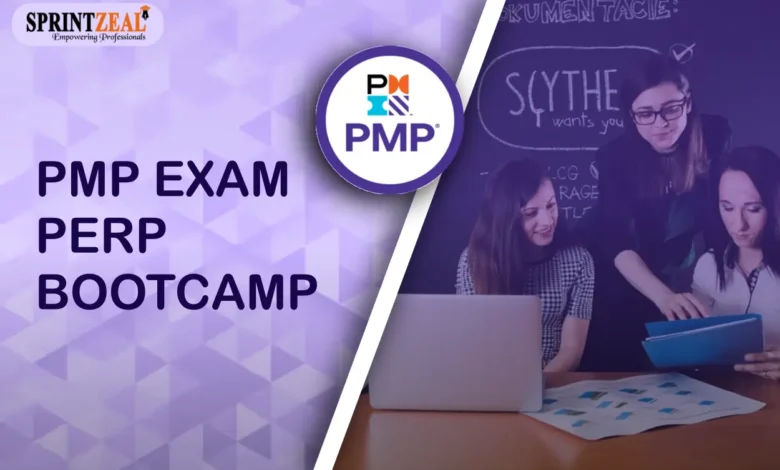
The Project Management Professional (PMP) certification is one of the most recognized and sought-after credentials in the project management field. It is offered by the Project Management Institute (PMI), a globally renowned organization that sets the standards for project management excellence. Earning a PMP certification not only boosts your career prospects but also enhances your credibility and earning potential in the competitive business world. In this article, we’ll break down the steps to get PMP certified, highlight the requirements, and explain how to prepare for the exam.
What is PMP Certification?
The PMP certification is a professional designation that demonstrates a project manager’s ability to lead, manage, and direct projects efficiently. It is based on the PMI’s Project Management Body of Knowledge (PMBOK Guide) and covers five key project management process groups: Initiating, Planning, Executing, Monitoring and Controlling, and Closing.
The PMP certification in Seattle is recognized globally and applicable across various industries, including IT, construction, finance, healthcare, and engineering. It validates your skills in project management and is often considered a benchmark qualification for high-level project managers.
Benefits of PMP Certification
- Career Advancement: PMP certification helps you stand out to employers and enhances your marketability in project management roles.
- Higher Earning Potential: Certified PMP professionals earn significantly higher salaries than non-certified peers. According to PMI’s salary survey, PMP holders earn approximately 25% more than non-certified project managers.
- Global Recognition: The PMP credential is recognized worldwide, which allows for greater career mobility.
- Enhanced Project Management Skills: The PMP curriculum helps you master essential project management concepts and techniques.
- Networking Opportunities: By joining the PMI community, you gain access to a vast network of project management professionals, which can open doors to job opportunities and knowledge sharing.
PMP Certification Requirements
Before diving into the steps to get PMP certified, it’s essential to understand the eligibility requirements. PMI mandates that PMP candidates meet certain educational and professional experience criteria.
1. Educational Requirements
There are two pathways based on your educational background:
- If you have a four-year degree (bachelor’s degree or equivalent):
- You need at least 36 months of project management experience leading and directing projects.
- You must have completed 35 contact hours of formal project management education (such as a PMP prep course).
- If you have a high school diploma, associate’s degree, or equivalent:
- You need at least 60 months of project management experience leading and directing projects.
- You must have completed 35 contact hours of formal project management education (as mentioned above).
2. Project Management Experience
Your project management experience should be recent and must reflect your role in leading and managing projects. This experience can span various industries and project types, including IT, construction, healthcare, or marketing.
3. Project Management Education
The 35 hours of project management education can be obtained through PMI-approved Registered Education Providers (REPs), universities, or online courses. These programs cover the essential concepts of project management as outlined in the PMBOK Guide.
Step-by-Step Guide to Getting PMP Certified
Now that you understand the eligibility requirements, let’s walk through the steps to earn your PMP certification.
Step 1: Meet the Eligibility Criteria
Before you can apply for the PMP certification, make sure you fulfill the required educational qualifications and project management experience. You must also complete the 35 hours of formal project management education, which can be done through various prep courses, online classes, or training providers.
Step 2: Become a PMI Member
Although it’s not mandatory to become a PMI member before applying for the PMP exam, it’s highly recommended. Being a PMI member provides several benefits, including access to free digital copies of the PMBOK Guide, discounted exam fees, and access to valuable project management resources. The annual PMI membership fee is around $129, but the benefits far outweigh the cost.
Step 3: Submit Your PMP Application
Once you meet the eligibility criteria, it’s time to submit your PMP application. You can do this through PMI’s online certification system. The application involves filling out your educational background, professional project management experience, and details of the 35 contact hours of project management education.
It’s important to be thorough and accurate while documenting your project management experience. PMI may audit your application, and providing incorrect information can delay the process or result in disqualification.
Step 4: Schedule Your Exam
After your application is approved, you will receive an eligibility ID from PMI, which allows you to schedule your PMP exam. You have one year to take the exam from the date your application is approved, and you can take the exam up to three times within this eligibility period if needed.
The PMP exam can be taken at a testing center or online via a proctored exam. Online exams provide flexibility, but ensure that your computer and environment meet PMI’s technical requirements.
Step 5: Study for the PMP Exam
The PMP exam is challenging and requires thorough preparation. The exam consists of 180 multiple-choice questions based on the PMBOK Guide and covers the five process groups and ten knowledge areas. The exam duration is 230 minutes.
Here are some tips to help you study effectively:
- Use the PMBOK Guide: The PMBOK Guide is the primary reference for the exam. Study it thoroughly, and focus on understanding the key concepts, tools, and techniques of project management.
- Enroll in a PMP Prep Course: Formal PMP exam prep courses can help you grasp complex concepts, provide study materials, and guide you through practice questions.
- Leverage Online Resources: There are several online PMP study resources, including practice exams, flashcards, and discussion forums. Take advantage of these to test your knowledge and gain insights from other PMP aspirants.
- Practice with Mock Exams: Taking practice exams will help you get familiar with the format, timing, and style of questions you will face on the actual PMP exam.
- Create a Study Plan: Break down the PMBOK Guide into manageable sections and allocate time for each topic. Consistent and focused study will improve your chances of passing the exam.
Step 6: Take the PMP Exam
On the day of the exam, whether in person or online, make sure you are well-prepared and calm. The PMP exam tests your ability to apply project management concepts in real-world scenarios, so focus on answering questions based on your experience and knowledge from the PMBOK Guide.
You will receive your pass/fail result immediately after completing the exam. If you pass, you can start using the PMP credential and enjoy the career benefits it brings.
Step 7: Maintain Your PMP Certification
PMP certification is valid for three years. To maintain your certification, you must earn 60 Professional Development Units (PDUs) within this three-year period. PDUs can be earned by attending training sessions, webinars, or participating in project management-related activities.
If you do not accumulate the required PDUs, you will need to retake the PMP exam to retain your certification.
Conclusion
Getting PMP certified is a rewarding but challenging process. It requires careful planning, dedication, and a solid understanding of project management principles. By meeting the eligibility requirements, studying diligently, and preparing effectively for the exam, you can earn the PMP certification and unlock new career opportunities.
Becoming a PMP is more than just adding a credential to your resume; it signifies that you have the knowledge, skills, and experience to lead and manage projects successfully. If you’re serious about advancing your project management career, investing in a PMP certification is a worthwhile step.




